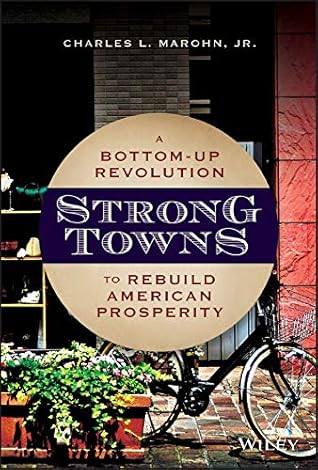More on this book
Community
Kindle Notes & Highlights
Read between
October 14 - October 27, 2022
Building a neighborhood all at once, instead of incrementally, merely ensures that all the inevitable pressures of decline will occur simultaneously across the entire neighborhood.
Cities adopted regulations and practices – such as high design speeds on local streets, parking requirements for private property, and anti-walking campaigns – that privilege distant auto-commuters over local land owners.
In the subsequent decades, buildings of astounding grandeur in our core cities were razed to make room for parking lots. It wasn’t because parking provides great value – it doesn’t – but merely that the cost of maintaining and repairing the structures could not be justified with collapsing land values. Americans spent an incredible amount of money to destroy generations of wealth, buildings of such magnificence that we could not recreate them today if we desired to.
Humans have a propensity to highly value pleasurable feedback today and to deeply discount potential negative consequences in the distant future. Psychologists call this effect temporal discounting.
In the system we have evolved, the ideal citizen creates growth, not by saving and investing, but by consuming beyond their means. It matters little that this is ruinous to the individual, that such financial insecurity creates enormous levels of instability. Individual avarice is necessary for our national GDP to grow. Savings is punished with artificially low returns while debt is subsidized. Our individual value to the whole is based on our capacity, even our desire, to consume.
When we know my mother-in-law is stopping by, my wife will tidy up the house. It’s not that our house is particularly messy, or that my mother-in-law would judge us lacking if it were, but more that my wife’s respect and admiration for her mom makes her take note of the shape our home is in.
In Italy, we walked everywhere. They all did. It was the easiest way to get around and, since everyone walked most places, the cities were very delightful to walk in.


